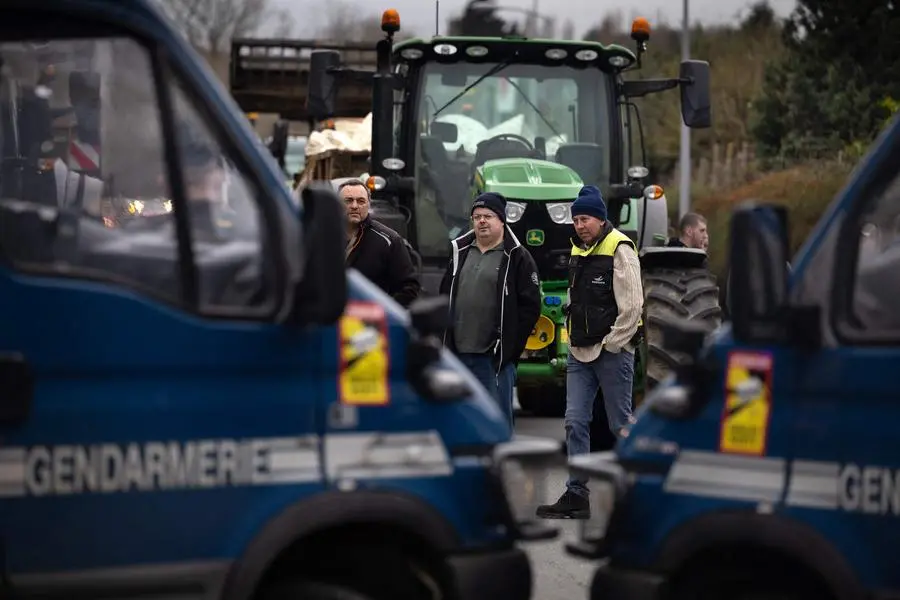PHOTO
France's Prime Minister Gabriel Attal sought to head off fresh farmers' protests Wednesday, as they resumed direct action including dumping produce and blocking roads in pursuit of their demands.
Attal promised to elevate agriculture "to the status of a fundamental national interest", outlining a agriculture bill designed to address farmers' grievances.
Already last month, farmers had staged crippling nationwide protests before their unions called for them to be suspended following promises of reform from the government.
But this weekend's national agriculture show has become a de facto deadline for the government to meet their demands.
Even as Attal was speaking Wednesday, farmers were blockading a stretch of around 70 kilometres (43 miles) on a motorway in the south of the country.
On Tuesday, farmers had blocked a milk transport in protest against wholesale prices they say are too low, and set fire to tyres at roundabouts.
In some of the angriest protests in Europe, French farmers were out in force for more than a week in January, using tractors to block key roads into Paris and other major highways nationwide.
Their grievances include burdensome environmental rules, the threat of cheap imports from outside the EU, and measures to address the low income many of them still suffer.
- 'What farmers wanted' -
On Wednesday, Attal announced a forthcoming law would lay out measures "in black and white".
He said it was aimed at achieving "farming and food sovereignty" for France, and incorporate the dozens of promises already made to protesting farmers since the start of the crisis.
It would also create a new basis for negotiations between producers and wholesalers to improve the income of farmers, a key issue for the sector.
Already, payments under the European Union's Common Agricultural Policy (CAP) have been made much faster than at this time last year, he said.
Several million euros have been paid out in emergency aid, notably to livestock farmers, he added.
France will also stop using its current national indicator for pesticide reduction -- which farmers' unions wanted to get rid of -- using an EU indicator instead, he said.
"That is what farmers wanted," he said.
This measure was decided despite protests from environmental groups.
But the government stood by its target of cutting pesticide use by 50 percent by 2030, said Attal.
The government will also make it easier for farmers to get temporary visas for foreign seasonal agriculture workers, and will continue to waive payroll taxes on almost all seasonal farm work, he added.
- Tractors to Paris -
The FNSEA and the Young Farmers (JA) union had already announced they will lead a column of tractors to the agriculture show in Paris Friday ahead of French President Emmanuel Macron's visit.
Macron will visit the Salon de l'Agriculture on Saturday, as is traditional for France's presidents.
Farmers' unions have made it clear they want ironclad assurances that their grievances have been being addressed before then.
"The time of political decisions has come," said Arnaud Rousseau, head of the biggest farmers' union FNSEA, late Tuesday. "Expectations are running high."





















